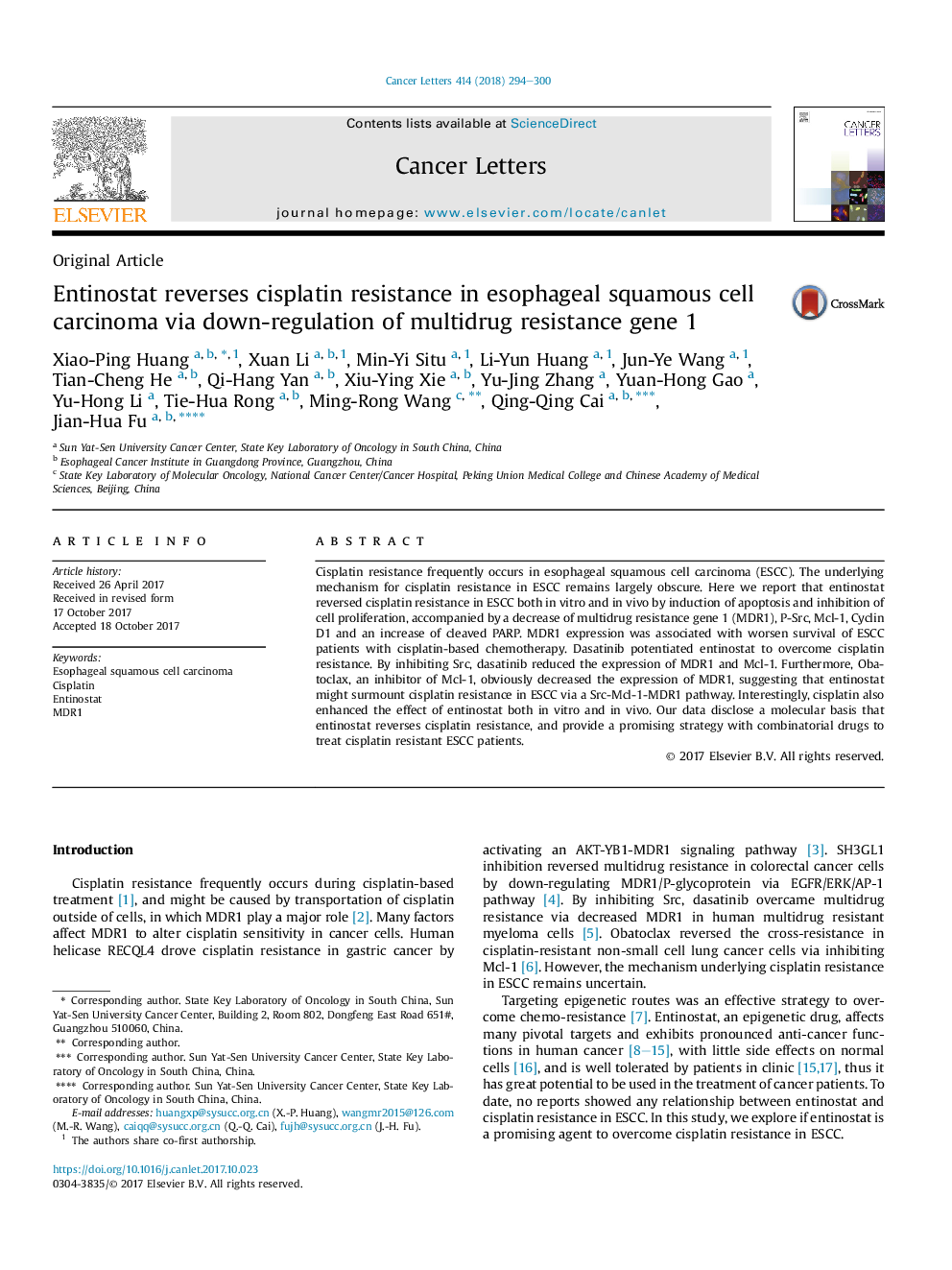| Article ID | Journal | Published Year | Pages | File Type |
|---|---|---|---|---|
| 8435045 | Cancer Letters | 2018 | 7 Pages |
Abstract
Cisplatin resistance frequently occurs in esophageal squamous cell carcinoma (ESCC). The underlying mechanism for cisplatin resistance in ESCC remains largely obscure. Here we report that entinostat reversed cisplatin resistance in ESCC both in vitro and in vivo by induction of apoptosis and inhibition of cell proliferation, accompanied by a decrease of multidrug resistance gene 1 (MDR1), P-Src, Mcl-1, Cyclin D1 and an increase of cleaved PARP. MDR1 expression was associated with worsen survival of ESCC patients with cisplatin-based chemotherapy. Dasatinib potentiated entinostat to overcome cisplatin resistance. By inhibiting Src, dasatinib reduced the expression of MDR1 and Mcl-1. Furthermore, Obatoclax, an inhibitor of Mcl-1, obviously decreased the expression of MDR1, suggesting that entinostat might surmount cisplatin resistance in ESCC via a Src-Mcl-1-MDR1 pathway. Interestingly, cisplatin also enhanced the effect of entinostat both in vitro and in vivo. Our data disclose a molecular basis that entinostat reverses cisplatin resistance, and provide a promising strategy with combinatorial drugs to treat cisplatin resistant ESCC patients.
Related Topics
Life Sciences
Biochemistry, Genetics and Molecular Biology
Cancer Research
Authors
Xiao-Ping Huang, Xuan Li, Min-Yi Situ, Li-Yun Huang, Jun-Ye Wang, Tian-Cheng He, Qi-Hang Yan, Xiu-Ying Xie, Yu-Jing Zhang, Yuan-Hong Gao, Yu-Hong Li, Tie-Hua Rong, Ming-Rong Wang, Qing-Qing Cai, Jian-Hua Fu,
